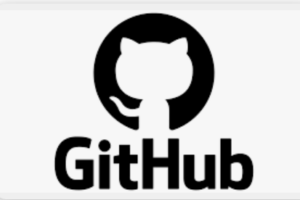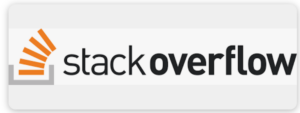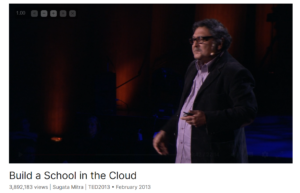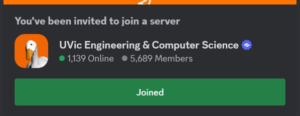Embracing UDL, Accessibility, and Ethical Practices in Digital Education

Hello everyone! As I delve deeper into the world of educational technology and its myriad facets, this module has been particularly enlightening. We’ve explored Universal Design for Learning (UDL), accessibility in online settings, and the ethical considerations that are crucial in the digital age. I’m eager to share my insights and reflections on these critical topics.
Understanding Universal Design for Learning (UDL)
Universal Design for Learning (UDL) is a pedagogical framework that aims to optimize teaching and learning for all individuals by providing multiple means of engagement, representation, and action/expression. The essence of UDL is inclusivity. It challenges educators to anticipate the diverse needs of all learners and provides them with varied opportunities to grasp content effectively.
For me, UDL is like laying out a rich tapestry of learning experiences where every student can find pathways that resonate with their unique learning styles, preferences, and needs. In a physical classroom, this might translate into offering auditory, visual, and kinesthetic activities. In a digital environment, UDL can mean creating multimedia resources, such as videos, articles, and interactive simulations, to cater to various preferences. By doing so, educators pave the way for more inclusive classrooms that acknowledge and value diversity.
Ensuring Accessibility in Online Settings
Accessibility in online settings is not just a box to tick; it’s a fundamental right. It ensures that all learners, regardless of their abilities, can access and benefit from digital resources. Some critical components include providing transcripts for audio content, using screen reader-friendly web pages, and ensuring keyboard navigability.
I’ve noticed how accessibility plays a key role in my learning, particularly when using online platforms that offer text-to-speech options. Tools like these not only support diverse learning needs but also enhance overall engagement and comprehension, allowing me to consume content in multiple forms.
I found this study by Wood et al. very interesting: https://pmc.ncbi.nlm.nih.gov/articles/PMC5494021/. It’s a meta-analysis examining how Text-to-Speech and other read-aloud tools can enhance reading comprehension for individuals with reading difficulties. The study explores the significance of integrating such tools, highlighting how the inclusion of a simple option can significantly help comprehension and accessibility for those struggling with traditional reading methods. It points to the potential for technology to bridge gaps in learning and provide equal opportunities for success in reading.
To explore more about enhancing accessibility in digital spaces, you might find the video below by San Francisco State University very insightful.
https://www.youtube.com/watch?v=OjIRQ4nMkAI
Navigating the Ethical Challenges of EdTech
With the rise of educational technology, ethical challenges have become more pronounced. Privacy concerns, data security, and equitable access are significant issues that educators must address. The collection of student data for personalized learning, while beneficial, can border on an invasion of privacy. This dilemma requires educators to find a delicate balance between leveraging technology for improved learning experiences and protecting students’ personal information and rights.
One strategy could involve transparent communication about data usage, paired with robust cybersecurity measures. Exploring case studies and discussions in forums such as the EdSurge Podcast can provide deeper understanding and varied perspectives about these challenges.. I’ve shared a video below by them that discusses a lot we’ve learned so far.
https://www.youtube.com/watch?v=kGHCXiLziQ0
Ethical Considerations in Digital Interactions

The digital world requires us to maintain ethical standards akin to those in the physical world. Respectful and inclusive behavior online ensures that our interactions uphold dignity and equity. Whether in professional communities or social media, practicing empathy and maintaining etiquette is essential. As digital citizens, we have a responsibility to foster an online environment that is respectful and supportive. This ethical mindfulness not only enhances our own experiences but also builds a healthier digital community.
Applying UDL and Accessibility Principles in Practice
Reflecting on a learning environment I’ve been part of, I realize there were gaps in addressing UDL and accessibility. Although there were diverse resources available, not all materials were designed with accessibility in mind. Improvements like incorporating closed captions and offering alternative formats for assignments could have greatly supported diverse learners.

Overall, embracing UDL and accessibility, while being aware of ethical considerations, enriches the educational journey for all. It nudges us toward creating a learning ecosystem that respects and thrives on diversity, paving the way for equal opportunities in education.
Thank you for joining me on this exploration of UDL, digital accessibility, and ethics in education. I’m excited to continue learning and sharing these insights as we move forward in this digital age!
References:
Wood SG, Moxley JH, Tighe EL, Wagner RK. Does Use of Text-to-Speech and Related Read-Aloud Tools Improve Reading Comprehension for Students With Reading Disabilities? A Meta-Analysis. J Learn Disabil. 2018 Jan/Feb;51(1):73-84. doi: 10.1177/0022219416688170. Epub 2017 Jan 23. PMID: 28112580; PMCID: PMC5494021.






